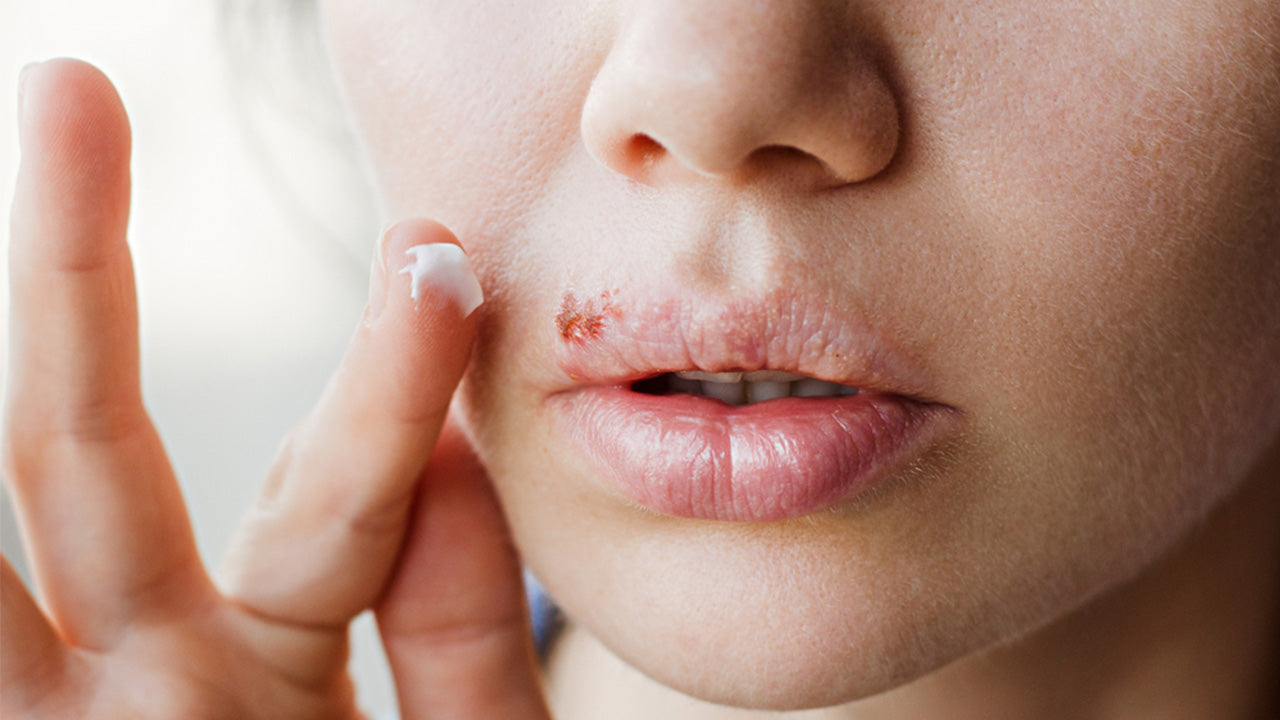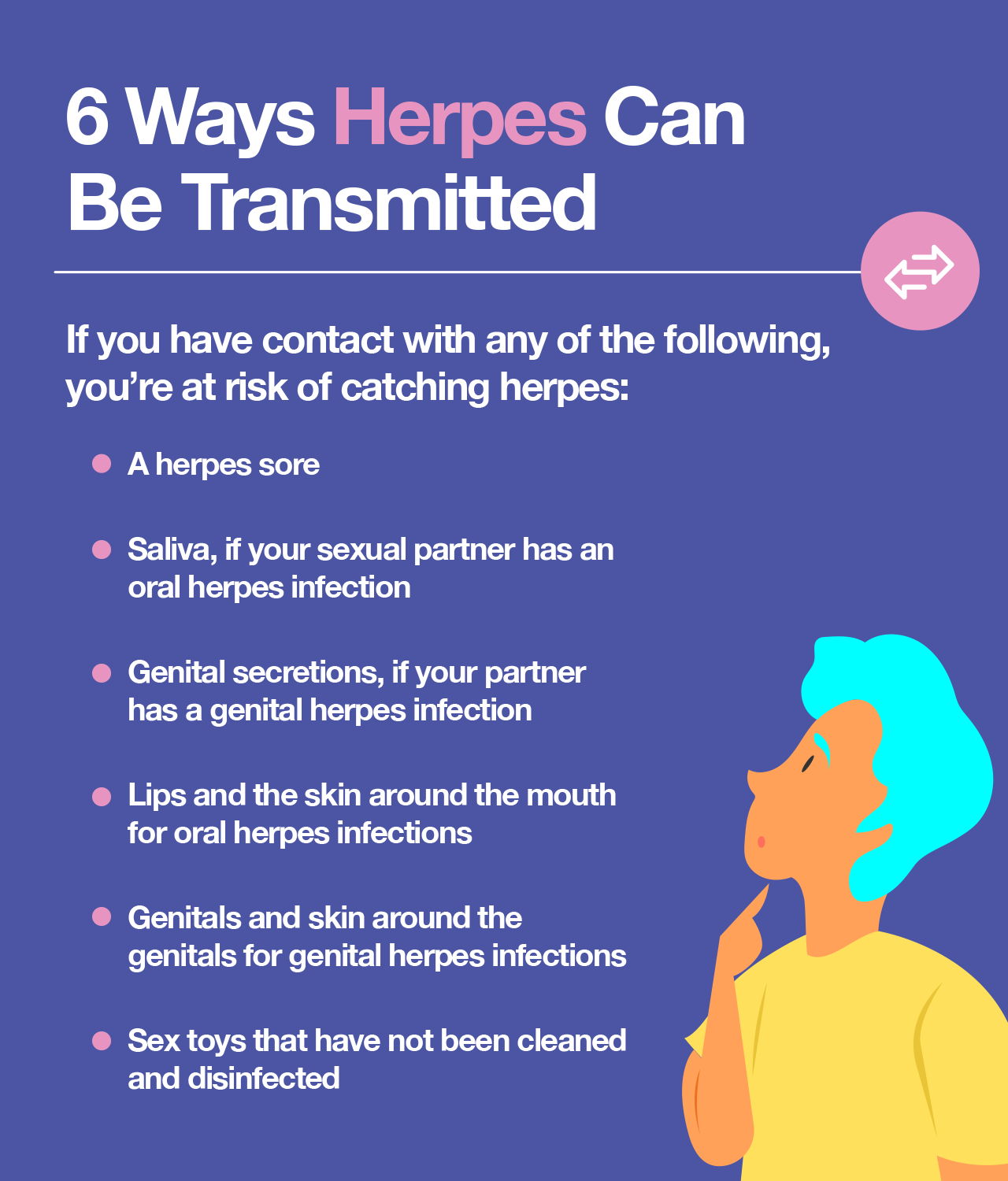Is Herpes Curable? Plus Answers to 3 Other Common Questions About Herpes
 By: by Amino Science
By: by Amino Science

It’s hardly surprising that many people want to know: “Is herpes curable?”
Herpes, a sexually transmitted infection, or STI, is quite common. Approximately one out of every eight people between the ages of 14 and 49 living in the United States has herpes, according to the American Sexual Health Association. It’s also quite common for people with herpes to be unaware that they’re infected—studies estimate that nearly 90% of individuals with herpes do not know they have it. In addition to unpleasant physical symptoms, a herpes diagnosis comes with a high degree of stigma that can affect a person’s romantic life, social life, and mental health.
In this article, we’ll answer four common questions about herpes:
- What is herpes?
- How do you get herpes?
- Is herpes curable?
- How can you prevent herpes?
1. What Is Herpes?
Two types of viruses cause herpes: the herpes simplex virus type 1 (HSV-1) and herpes simplex virus type 2 (HSV-2).
In most cases, oral herpes is caused by HSV-1, which can result in cold sores, fever blisters, and other manifestations of herpes on the lips or around the mouth. About 50% of teenagers and adults living in the United States carry the HSV-1 virus. The majority of those people, however, show no symptoms. Typically, HSV-1 is transmitted during childhood or young adulthood through non-sexual contact with saliva.
HSV-1 can cause sores on other mucosal surfaces, however. Having oral sex can spread HSV-1 from the mouth to the genitals, and increasing numbers of genital herpes cases have now been shown to result from HSV-1.
Statistics gathered by the Centers for Disease Control and Prevention (CDC) tell us that approximately 15.5% of people in the U.S. between 14 and 49 have HSV-2. Most people with herpes won’t experience any symptoms of the infection for months or even years after they become infected. If they do notice symptoms during the initial period, they will typically appear between 2 and 12 days after exposure.
2. How Do You Get Herpes?
Most people who get genital herpes do so by having vaginal, anal, or oral sex with a person who already has this STI. You can catch the infection through contact with:
- A herpes sore
- Saliva, if your sexual partner has an oral herpes infection
- Genital secretions, if your partner has a genital herpes infection
- Lips and the skin around the mouth for oral herpes infections
- Genitals and skin around the genitals for genital herpes infections
- Sex toys that have not been cleaned and disinfected
If HSV-1 or HSV-2 are present on someone’s skin, it can easily be transmitted to someone else via the moist skin that lines the mouth, genitals, and anus. While this is less common, it can be spread through other areas of the skin, including the eyes. If a woman with genital herpes has active sores while giving birth, it is possible for the infection to be passed to the baby.
Herpes is most contagious just before a blister appears, while the blister is visible, and during the healing period. Even if your sex partner has no visible sores at the time, it’s possible (though less likely) for them to pass the infection to you. It’s also possible for a sexual partner to unwittingly infect you if they themselves are unaware of their status.
It is not possible to catch herpes from toilet seats, bedding, or swimming pools. You also can’t get herpes by touching an object, worksurface, silverware, washbasin, soap, or towel that has been touched by a person with the infection.

3. Is Herpes Curable?
While there is no herpes cure, it can be managed with medication. There are a variety of treatment options for herpes, including both home remedies and prescription medication.
Home Remedies for Herpes
Home remedies for herpes focus on alleviating the discomfort associated with outbreaks. Popular natural treatments for herpes include:
- Taking painkillers like acetaminophen and ibuprofen
- Using amino acid supplements like lysine and arginine
- Essential oils like lemon balm
- Warm sitz baths
- Applying petroleum jelly to the affected area
- Avoiding wearing tight clothing that covers the affected area
- Washing hands thoroughly, especially after touching the affected area
- Refraining from sexual activity until the symptoms have cleared up
- Applying pain-relieving creams or lotions like lidocaine
- Applying an ice pack wrapped in a towel to the affected area
Common Medications Used to Treat Herpes
While no drug can cure herpes, antiviral medication such as acyclovir can prevent the virus from multiplying. Taking an antiviral medication can help outbreaks clear up faster as well as help decrease the severity of symptoms.
For people who have less than six recurrent outbreaks of herpes per year, doctors typically use episodic treatment to manage symptoms. This means that each time a person has an outbreak, their doctor will prescribe a five-day course of antivirals.
If a person has more than six recurrent outbreaks of herpes per year, then the doctor may suggest suppressive treatment. This involves taking a daily antiviral treatment indefinitely with the goal of preventing future outbreaks. Suppressive treatment also substantially decreases the likelihood of passing herpes to a partner, but there is still a risk.
For more information on available treatment options, consult your healthcare provider. It can also be helpful to speak with a provider or counselor, or consult online resources, for guidance on how to talk to sexual partners about STIs.

4. How Can You Prevent Herpes?
The only completely effective way to prevent herpes is to abstain from vaginal, anal, and oral sex. There are steps you can take, however, to decrease the risk of herpes infection associated with sexual activity.
The safest sexual activity occurs within long-term, mutually monogamous relationships in which both partners have been tested for STIs and have negative results.
Using latex condoms correctly every time you have sex can also substantially decrease your risk, though it’s important to note that not all herpes sores occur in areas covered by a condom. It’s also possible for herpes to be transmitted from areas of skin that do not have visible herpes sores.
If you have herpes, or your sexual partner has herpes, there are steps you can take to lower the chances of the infection being transmitted.
Abstaining from sexual contact—genital, anal, oral, and skin-to-skin—when symptoms are present is a good first step. And as we mentioned earlier, taking daily antiviral medications also makes it less likely that you will pass herpes to a partner.
If you have herpes, it can also be beneficial to track factors that seem to make you more prone to outbreaks, such as stress, fatigue, illness, friction against your skin, or sunbathing. Identifying your triggers can help to lower the number of outbreaks you experience.


Up to 25% off Amino
Shop NowTAGS: conditions
Join the Community
Comments (0)
Most Craveable Recipes




 833-264-6620
833-264-6620



















